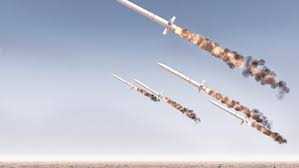
The remarks by Union Defence Minister Rajnath Singh that Pakistan’s nuclear weapons must be placed under the supervision of the International Atomic Energy Agency (IAEA), have sparked significant debate. These comments follow Pakistan’s reckless actions after Operation Sindoor on May 7, 2025, and highlight the urgent need for international scrutiny over Islamabad’s nuclear arsenal. Operation Sindoor was our calculated military response to the brutal terrorist attack in Pahalgam, which claimed the lives of 26 civilians. The operation targeted nine terror camps located in Pakistan and Pakistan-occupied Kashmir (PoK), resulting in the elimination of over 70 terrorists. However, instead of introspection or diplomatic restraint, Pakistan responded with a series of missile and drone attacks across the Line of Control (LoC), dangerously escalating tensions. What raised alarm globally was not just Pakistan’s military retaliation but the subsequent summoning of the National Command Authority (NCA), which oversees the country’s nuclear assets. The meeting, interpreted by many as a subtle nuclear threat, was later downplayed. Yet, the fact remains that Pakistan’s willingness to hint at nuclear capabilities, even indirectly, during conventional military exchanges is deeply concerning. Pakistan’s nuclear doctrine remains ambiguous, with its persistent refusal to adopt a No First Use (NFU) policy, unlike India. The country’s stance has often been described as reckless, given its documented history of using nuclear threats as a strategic lever against India. This posture, coupled with Pakistan’s well-known support for cross-border terrorism, raises legitimate fears that its nuclear arsenal might one day serve as a shield for proxy wars or, worse, fall into the hands of extremist elements within its own borders. The IAEA’s primary mandate is to monitor nuclear programs to ensure they are used for peaceful purposes. While the agency traditionally oversees civilian nuclear facilities, the risk posed by Pakistan’s nuclear behavior warrants an expanded role. International supervision would help mitigate the risk of nuclear weapons being used impulsively or falling into the wrong hands. Considering Pakistan’s internal political instability and the influence of extremist factions, the potential for a catastrophic mishap is alarmingly high. With millions of lives at stake and the regional stability hanging by a thread, proactive measures are essential. The world must not wait for another crisis to confront the reality of Pakistan’s nuclear brinkmanship. The international community, particularly the United Nations Security Council, must seriously consider mechanisms to ensure nuclear security. Rajnath Singh’s proposal is not merely an Indian concern but a global one, emphasizing our collective responsibility to safeguard humanity from the consequences of nuclear recklessness.
The remarks by Union Defence Minister Rajnath Singh that Pakistan’s nuclear weapons must be placed under the supervision of the International Atomic Energy Agency (IAEA), have sparked significant debate. These comments follow Pakistan’s reckless actions after Operation Sindoor on May 7, 2025, and highlight the urgent need for international scrutiny over Islamabad’s nuclear arsenal. Operation Sindoor was our calculated military response to the brutal terrorist attack in Pahalgam, which claimed the lives of 26 civilians. The operation targeted nine terror camps located in Pakistan and Pakistan-occupied Kashmir (PoK), resulting in the elimination of over 70 terrorists. However, instead of introspection or diplomatic restraint, Pakistan responded with a series of missile and drone attacks across the Line of Control (LoC), dangerously escalating tensions. What raised alarm globally was not just Pakistan’s military retaliation but the subsequent summoning of the National Command Authority (NCA), which oversees the country’s nuclear assets. The meeting, interpreted by many as a subtle nuclear threat, was later downplayed. Yet, the fact remains that Pakistan’s willingness to hint at nuclear capabilities, even indirectly, during conventional military exchanges is deeply concerning. Pakistan’s nuclear doctrine remains ambiguous, with its persistent refusal to adopt a No First Use (NFU) policy, unlike India. The country’s stance has often been described as reckless, given its documented history of using nuclear threats as a strategic lever against India. This posture, coupled with Pakistan’s well-known support for cross-border terrorism, raises legitimate fears that its nuclear arsenal might one day serve as a shield for proxy wars or, worse, fall into the hands of extremist elements within its own borders. The IAEA’s primary mandate is to monitor nuclear programs to ensure they are used for peaceful purposes. While the agency traditionally oversees civilian nuclear facilities, the risk posed by Pakistan’s nuclear behavior warrants an expanded role. International supervision would help mitigate the risk of nuclear weapons being used impulsively or falling into the wrong hands. Considering Pakistan’s internal political instability and the influence of extremist factions, the potential for a catastrophic mishap is alarmingly high. With millions of lives at stake and the regional stability hanging by a thread, proactive measures are essential. The world must not wait for another crisis to confront the reality of Pakistan’s nuclear brinkmanship. The international community, particularly the United Nations Security Council, must seriously consider mechanisms to ensure nuclear security. Rajnath Singh’s proposal is not merely an Indian concern but a global one, emphasizing our collective responsibility to safeguard humanity from the consequences of nuclear recklessness.
© Copyright 2023 brighterkashmir.com All Rights Reserved. Quantum Technologies